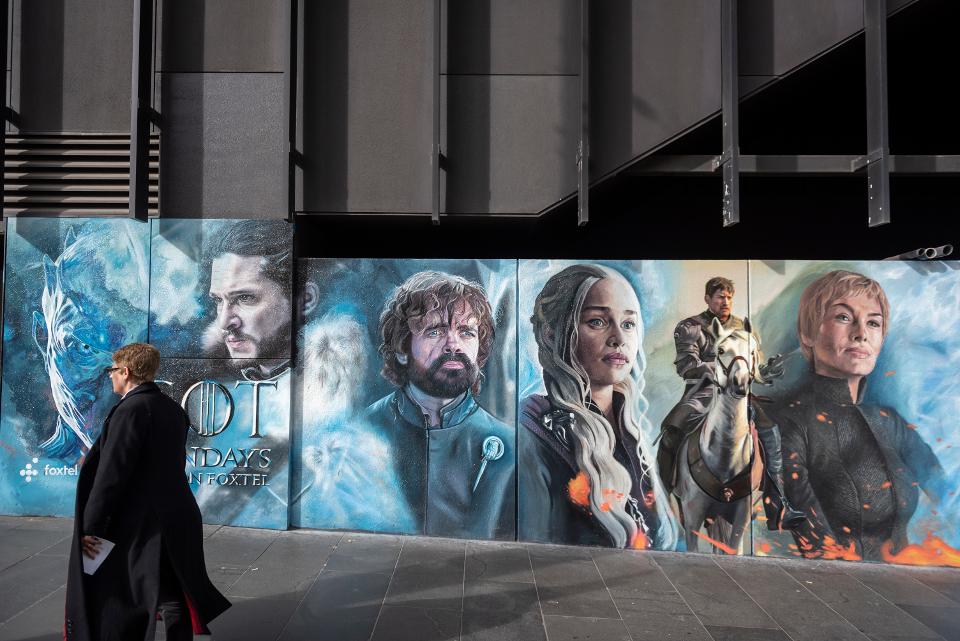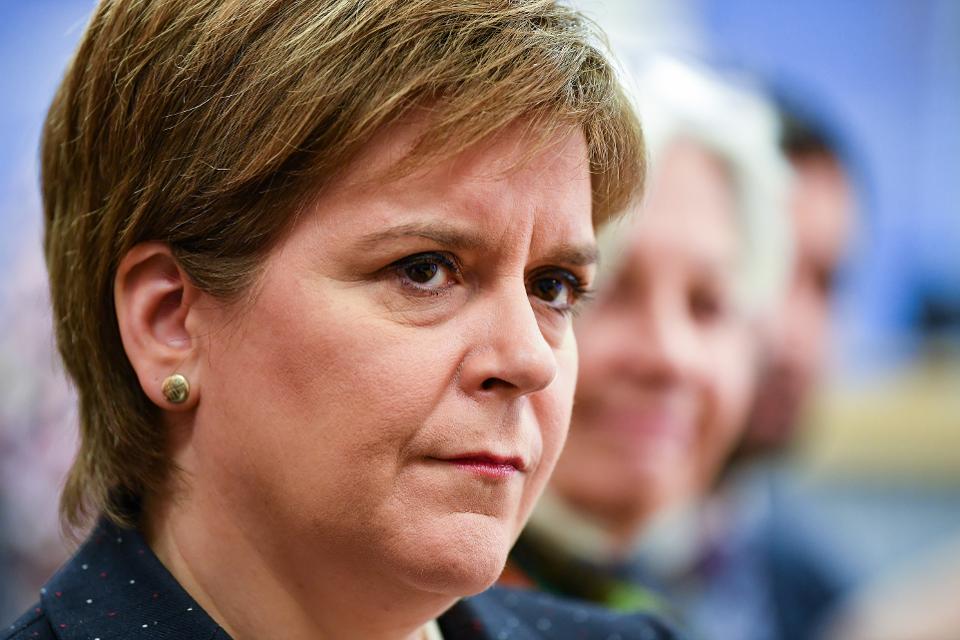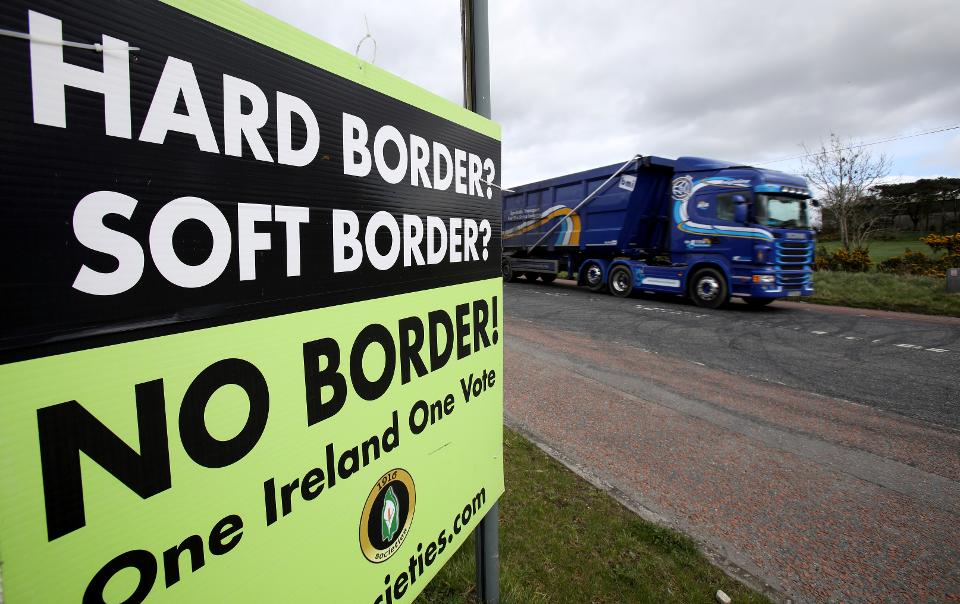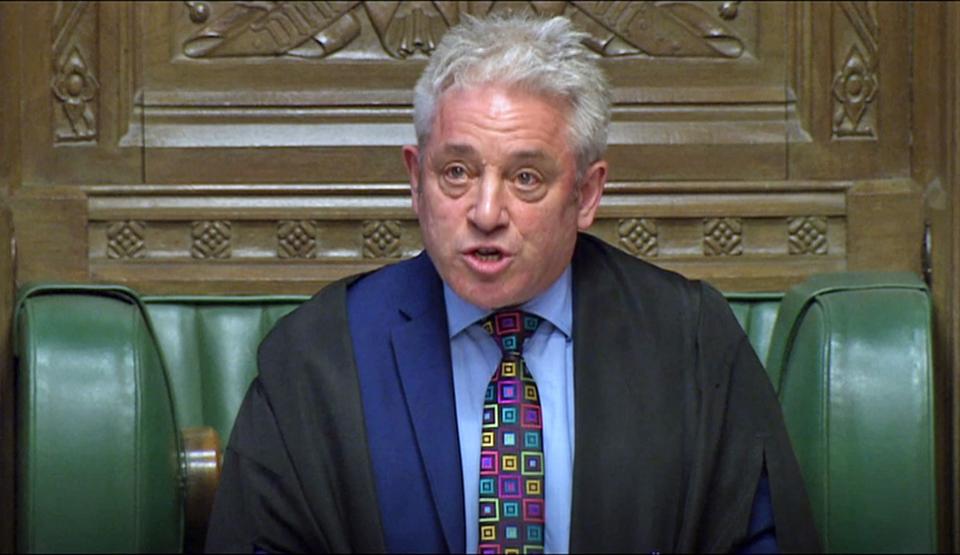
Game of Thrones has more in common with Brexit than you’d think.Getty
If you’re confused by Brexit while sitting on the other side of the Atlantic, allow Forbes’ London bureau to explain how the country has gotten itself in more of a mess than Westeros.
For the 17 million people who voted “Leave” in 2016 referendum, Friday was to be Britain’s “Independence Day.” Instead, after two years of political backstabbing and backpedaling, Parliamentarians voted against Britain leaving the European Union for the third time. That vote has put the final nail in the coffin for the prime minister’s proposed deal and potentially her government. In a Game of Brexit, Theresa May, with her steel-eyed stare and her propensity to get outmanoeuvred by her rivals time after time, would almost certainly be played by Cersei Lannister.
So why are hundreds of Members of Parliament continuing to vote against what the British people asked for in the referendum almost three years ago? The answer is far from simple, but a loose Game of Thrones analogy can help us understand it.
In Game of Thrones there are seven kingdoms. In Game of Brexit, there are four (England, Scotland, Wales and Northern Ireland), each with its own sense of national identity and level of political autonomy. If you have ever accidentally called a Scotsman English in a pub, you will appreciate how sensitive these differences are.
The 2016 referendum vote was a binary choice between “Remain” and “Leave” the European Union. It did not, in any way, specify what “Leave” actually meant. And this has led to many of the problems we face today.
Although the votes were counted in all four of the U.K.’s nations, the results revealed a stark split. Scotland and Northern Ireland both voted to remain, whereas England and Wales voted to leave. There was no mechanism in place or thought put in to what to do if the union itself was split.

Scotland’s First Minister Nicola Sturgeon fights to keep Scotland aligned with the European Union.Photo by Jeff J Mitchell/Getty Images
The Queen in the North
Before the Brexit mess kicked off, Scotland had already come perilously close to leaving the union in a “once in a generation” referendum in 2014. Much like Game of Thrones, the “North” of the United Kingdom already has a high level of autonomy, from law to police even the printing of its own bank notes.
Nicola Sturgeon, the first minister of Scotland, the Jon Snow of this analogy, has been faced with an impossible challenge: Her country and her party are against leaving the EU, and yet her point of view and the millions of people she represents have been largely ignored by London, which has lead to fresh calls for Scotland to leave the union. And it is exactly why all 35 of the Scottish Nationalist MPs in the Parliament have consistently voted against the proposals to leave the EU in Westminster.
The Irish Backstop
Above all else, and jokes about Game of Thrones aside, Ireland presents the biggest threat to the Brexit process. And it is this issue that has prevented many politicians from voting for any deal to leave the European Union, regardless of what their voters may think.
As it stands, Northern Ireland is part of the United Kingdom, but for the sake of long-awaited peace in the region, democratic power is shared between pro-Irish Republican and pro-Unionist (U.K.) parties.
The system has been far from perfect, but the peace deal signed in 1998 largely ended three decades of conflict that claimed the lives of thousands. Today the border between Ireland and Northern Ireland is entirely open, much like many of the borders in continental Europe, meaning that millions of people can live and work in either country freely without ever facing checks.

A lorry passes a poster by calling for ‘No Border’ between Ireland and Northern Ireland, in a post Brexit United Kingdom, in Jonesborough, Northern Ireland on March 25, 2019, as it crosses the border between Ireland and Northern Ireland. – KeepingAFP/Getty Images
Much of the back and forth around the votes you have seen going through Parliament have centered on this issue. Put simply: If the U.K. leaves the European Union and ends free trade, there will have to be a hard border with checkpoints between Ireland and Northern Ireland. Or, Northern Ireland will have to be treated like a separate state, staying within the European Union but in effect acting like a separate nation from the rest of the U.K. While that may sound insignificant, that change could open up wounds from decades ago and goes against the views of everyone, the Irish, the Northern Irish and all political parties in Britain. Ask anyone over the age of 30 in Britain about their memories of threats from the Irish Republican Army (IRA), and you will quickly realize how scared many people are of that reality coming back. I still vividly remember Manchester city center, my father’s hometown, being ripped apart by a bomb back in the 1990s.
MPs Say What They Don’t Want, Not What They Want
So after almost three years of debate, why the lack of consensus in Westminster? You have to look back at the question asked on the ballot paper. The prime minister likes to say, “Brexit means Brexit” or “Delivering the Brexit people voted for,” which makes for great political sound bites but suffers from one great problem—nobody is actually clear what Brexit or “Leave” actually means.
Many speculate this is because the campaigns behind the “Leave” vote did not actually believe they would win and therefore did not present a clear plan or vision for what Brexit meant. The British Parliament is a “representative democracy,” in which voters select a candidate from a party to represent their views in Parliament. That means you can have politicians within a party holding diverse personal views about Brexit, making it difficult to ever get a clear majority in any vote. Worse still, those personal views of elected politicians often contradict how their own constituents voted in the referendum three years ago.
And the issue has always divided both of the major parties, leading to major infighting within them, again making it hard to find the majority of votes needed to come to any agreement.

John Bercow, Speaker of the House addressing MPs. (Photo by House of Commons/PA Images via Getty Images)PA Images via Getty Images
Some commentators have pointed out that the situation we face today shows Parliament is actually operating in the way it was designed to. The divide in Parliament reflects the situation on main streets across the U.K.; every poll since the referendum shows there is no majority view on Brexit. The U.K.’s involvement in the European Union touches so many parts of everyday life that every person, business or politics will be looking at how each and every issue affects them individually, from James Dyson wanting to be free from the EU’s regulations on electric goods to bankers in the City of London not wanting to lose billions of pounds of business.
So if you have been watching Brexit minute by minute on TV news with utter confusion, remember that Brexit lacks a vision, a clear leader, or a consensus. It is a warring mess with multiple players all allying and conspiring against each other with their own interests at heart.
Sound familiar? Britain’s political winter is still coming. Every kingdom is fighting for its own interest. There aren’t any fire-breathing dragons (yet), but there is one thing to be sure of—expect plenty more plot twists. There will be more infighting, threats of a snap general election and much more turmoil before April’s hard deadline to leave, set by the European Union.




















![[Book Review] The Blade Itself (The First Law Trilogy) by Joe Abercrombie](https://bendthekneegot.com/wp-content/uploads/2018/01/1516047103_maxresdefault-218x150.jpg)
















